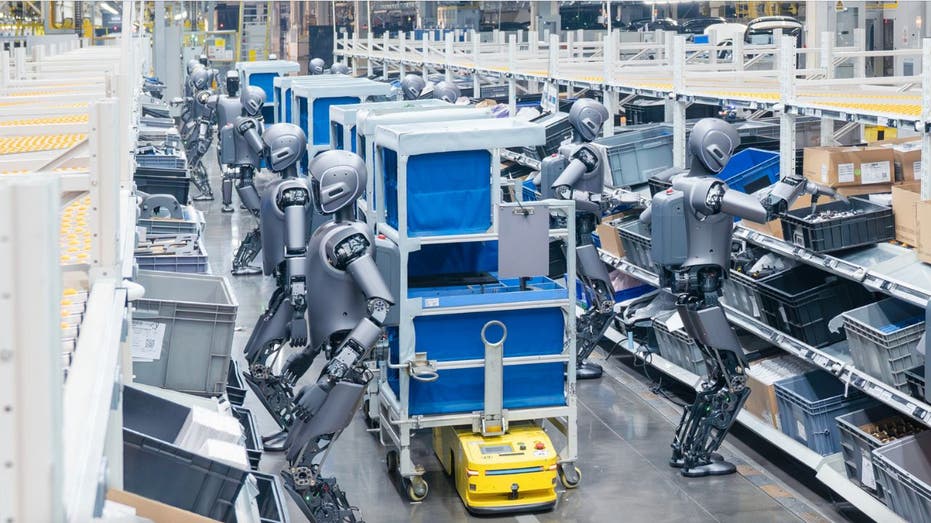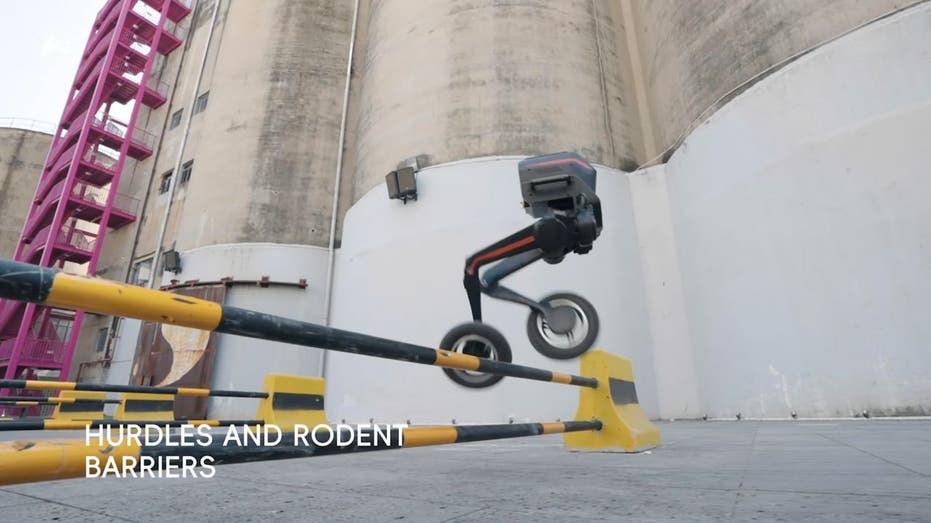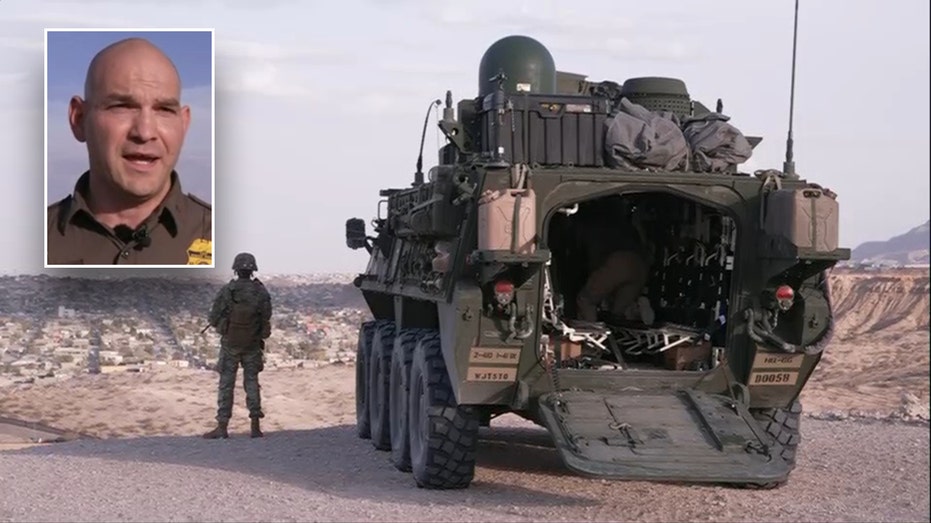- by foxnews
- 29 Mar 2025
Scary AI-powered swarm robots team up to build cars faster than ever
UBTech and Zeekr unite with AI robot swarms to make car manufacturing faster and smarter. Tech expert Kurt "CyberGuy" Knutsson explains how the process works.
- by foxnews
- 26 Mar 2025
- in technology

The automotive industry is undergoing a seismic shift driven by the integration of AI-powered humanoid robots into production lines. UBTech Robotics, in collaboration with Zeekr, has pioneered a groundbreaking initiative where swarm robots work together to build cars faster and more efficiently than ever before. But is this technological advancement a leap toward innovation or a step closer to human replacement?
Swarm Intelligence, inspired by collective behaviors in nature, is now being applied to robotics, enabling multiple humanoid robots to collaborate seamlessly on complex tasks. UBTech's Walker S1 robots are at the forefront of this revolution, operating in Zeekr's 5G-enabled smart factory. These robots are not just individual agents but part of a networked system that communicates and works in unison.
BrainNet framework: UBTech's proprietary BrainNet software links cloud-based and on-device intelligence to form a "super brain" for high-level decision-making and a "sub-brain" for localized control.
Multimodal reasoning model: This AI engine allows robots to analyze, schedule and coordinate tasks autonomously, adapting to dynamic industrial environments.
Collaborative capabilities: From sorting and handling heavy loads to precision assembly, these robots excel in tasks requiring dexterity and real-time decision-making.
These AI-powered robots are revolutionizing car manufacturing in several key areas. Let's take a closer look at how they're changing the game.
Using advanced vision-based perception and hybrid decision-making systems, Walker S1 robots optimize sorting tasks by dynamically tracking targets and sharing intelligence across the swarm.
Robots face challenges like uneven load distribution and complex trajectories. UBTech's joint planning system ensures stability and efficiency by enabling robots to adjust posture and force dynamically.
In delicate tasks like handling deformable materials, Walker S1 robots utilize tactile sensing and adaptive control to ensure precision without damaging components. These capabilities have already been deployed in Zeekr's factory for tasks ranging from quality inspection to vehicle assembly, showcasing unparalleled efficiency and accuracy.
Swarm Intelligence is not just limited to automotive manufacturing. Its applications span logistics, healthcare, agriculture and more. By decentralizing decision-making and optimizing resource allocation, swarm systems promise increased scalability and adaptability across industries.
While the integration of humanoid robots offers numerous benefits, such as addressing labor shortages and enhancing production efficiency, it also raises concerns about job displacement. The question remains: How do we balance technological advancement with societal impact?
Experts argue that these innovations could complement human workers rather than replace them entirely. Robots can take over repetitive or hazardous tasks, allowing humans to focus on more creative and strategic roles. However, careful planning is essential to ensure a constructive transition.
The automotive industry is really changing, with AI-powered robots taking center stage. UBTech and Zeekr are showing us how these robots can work together to make manufacturing faster and smarter. But as we get excited about these advancements, we also need to think about how they'll affect people's jobs. Let's hope we can find a way to make robots and humans work together seamlessly, rather than one replacing the other.
Follow Kurt on his social channels:
Answers to the most-asked CyberGuy questions:
New from Kurt:
Copyright 2025 CyberGuy.com. All rights reserved.
- by foxnews
- descember 09, 2016
Flight passenger 'finally' rejects seat-swap request, triggers social media debate
A flight passenger said they denied a flyer's request to switch seats and sit next to her husband, sparking a debate about seat swappers. An etiquette expert weighs in.
read more





